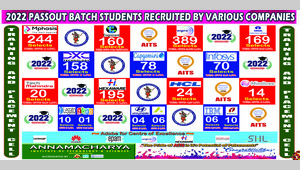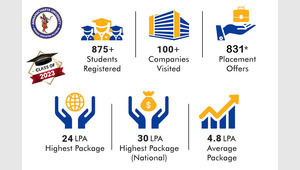Department
Artificial Intelligence & Machine Learning
Student Counselling
Student counselling provides essential support for students navigating the complexities of academic, personal, and career-related challenges. It helps students develop effective strategies for overcoming obstacles and achieving their goals. Additionally, having access to these resources fosters a sense of self-reliance and empowerment, as students can independently navigate their issues and track their progress. Monitor progress and gather feedback to assess the effectiveness of the resources, making adjustments as needed to better support students’ academic and personal development.





